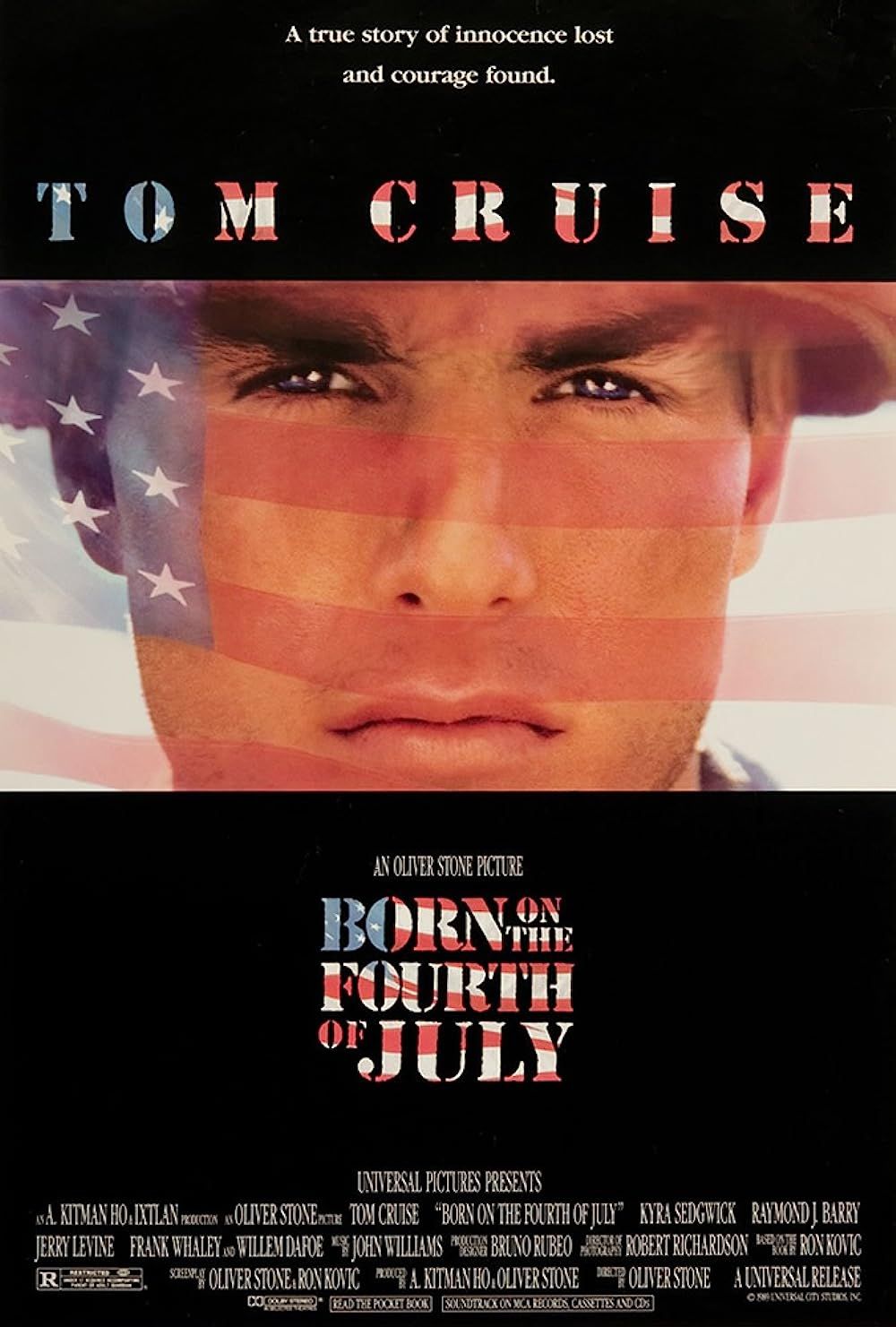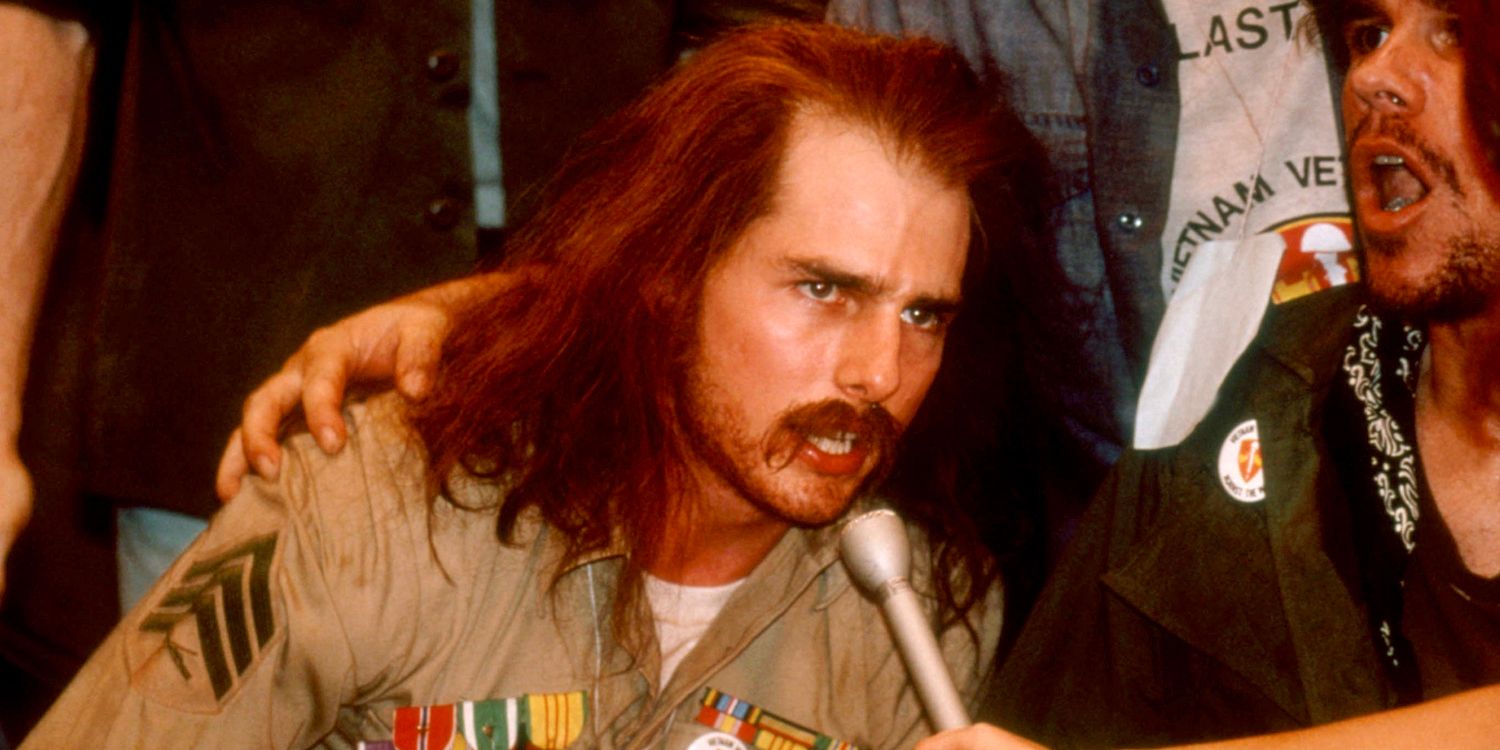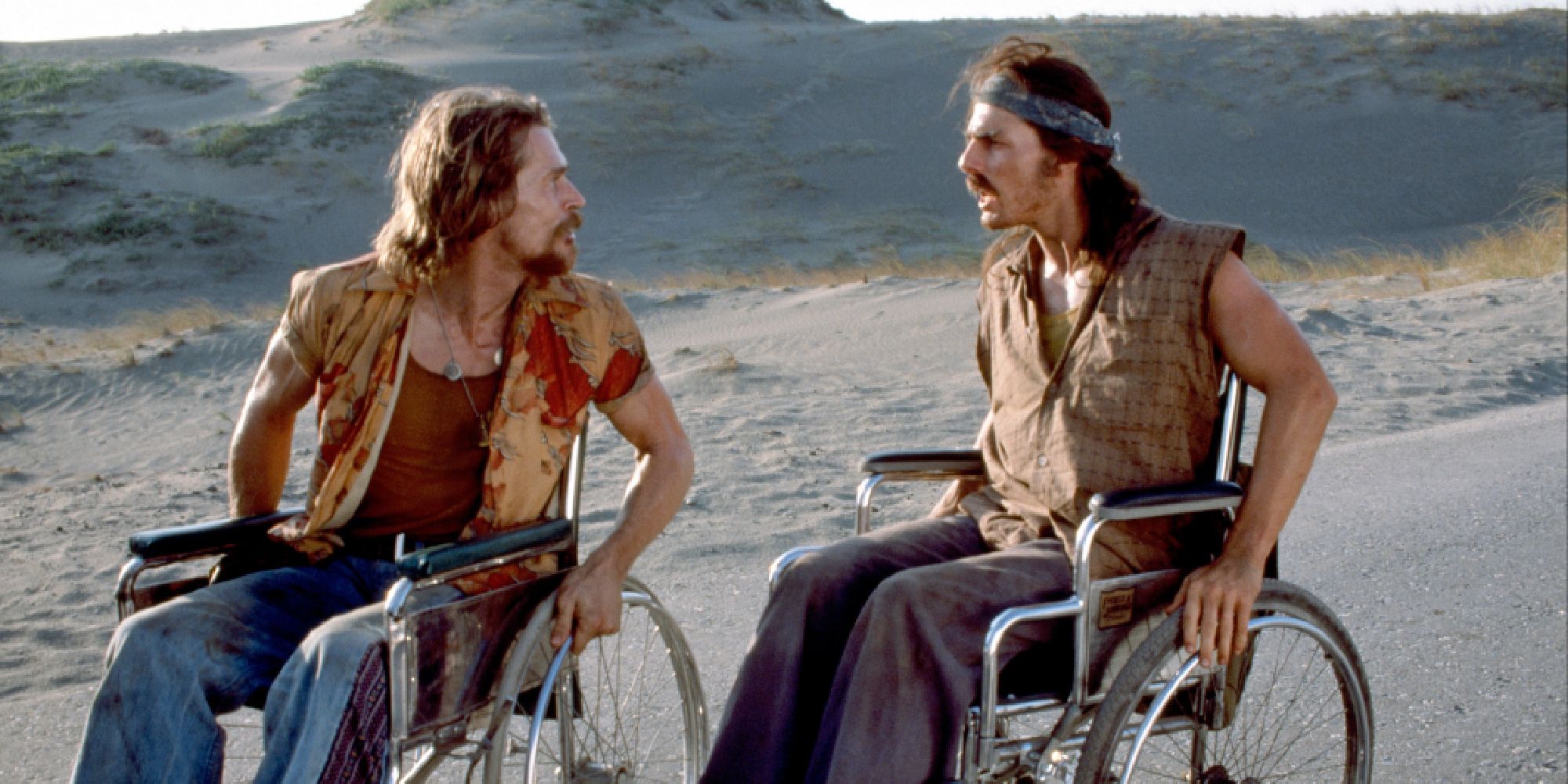The Big Picture
- Movie stars and actors are distinct in Hollywood, with actors seen as more artistically valuable than mere popcorn entertainment.
- Tom Cruise defied skepticism by taking on a challenging, dramatic role in "Born on the Fourth of July" to showcase his versatility.
- Cruise's dedication to embodying Ron Kovic's story reflects his commitment to artistic excellence over commercial success.
Generally speaking, in movie language, there is a clear divide between movie stars and actors. For the crowd that valorizes the dramatic chops and artistry of the actor, this is a badge of honor. Movie stars have the glamor and privilege, but they are usually regarded as lesser performers. In essence, movie stars provide popcorn entertainment, while actors expand one's cultural taste. Movie stars, as successful entrepreneurs in their own right, want to keep succeeding. This drive eventually calls for them to take on parts that showcase their dramatic chops, which will inevitably inspire doubters. In 1989, when Tom Cruise, the preeminent movie star of the time, decided to play a real-life Vietnam War veteran inflicted by combat wounds in Oliver Stone's Born on the Fourth of July, the skepticism of audiences, and even his director, was forever silenced. Cruise earned his first of three Academy Award nominations for his work in Born on the Fourth of July.

Born on the Fourth of July
The biography of Ron Kovic. Paralyzed in the Vietnam war, he becomes an anti-war and pro-human rights political activist after feeling betrayed by the country for which he fought.
- Run Time
- 145 minutes
- Director
- Oliver Stone
- Release Date
- December 20, 1989
- Actors
- Tom Cruise, Kyra Sedgwick, Raymond J. Barry, Jerry Levine, Frank Whaley, Willem Dafoe
'Born on the Fourth of July' Was a Sought-After Project in Hollywood
In the late 1980s, Tom Cruise was the biggest movie star in the world, and not much has changed in 2024. Perhaps Cruise's prominence speaks to Hollywood's waning farm system for developing young stars, but Cruise's sustainability is a miracle. He has elevated his status as the premiere spokesperson for movies as an art form and the theatrical experience. Before he was the symbol for movies themselves, Cruise was a sharp wunderkind foaming with charisma who made his name from a breakout role in Risky Business and soared to superstardom with the release of the 1986 aviation extravaganza, Top Gun. The actor could have cruised (no pun intended) off the success of the Tony Scott film and only made spectacle-driven blockbusters in its aftermath, but if Cruise's recent triumphs in restoring the theatrical experience have proven anything, it's that he is driven to take risks.
Ron Kovic, a Vietnam War veteran who was wounded in combat and paralyzed from the chest down and subsequently turned to anti-war activism, had an enticing story for any movie studio. Upon publishing his autobiography, Born on the Fourth of July in 1976, Hollywood, with the war now officially in the past, had their eyes set on a big screen adaptation. After years of ignoring the international quagmire that divided the nation, the industry was ready to reflect on this turbulent period. Kovic's arc and noisy appearance at the 1976 Democratic National Convention caught the attention of Al Pacino, who read his autobiography, met with Kovic himself, and negotiated a deal for the film rights with his manager, producer Martin Bregman. Because of his Vietnam background, Bregman hired Oliver Stone, an unknown writer attempting to get his autobiographical script about the war off the ground, which would eventually become the Best Picture-winning Platoon.
Following a decade stuck in development hell, with Pacino and Bregman exiting the project, Stone, who would write the script with the real-life subject, had Kovic's story to himself. From the get-go, Born on the Fourth of July was coveted as a prestigious endeavor--a film that could nab a studio a plethora of Academy Awards. It's no surprise that this project started with Al Pacino, the dictionary definition of a prestigious dramatic actor, in mind as the lead. A sweeping story about the Vietnam War that encompasses America's relationship pre-war, during the war, and post-war, calls for a lead with gravitas. As depicted in the film, Kovic, due to his tragic circumstances, was a man prone to volatile outbursts, which was a trait congruous to Pacino's screen persona.
Tom Cruise's Ability to Play Ron Kovic in 'Born on the Fourth of July' Was Doubted
Stone's agent, Paula Wagner, also represented Tom Cruise, who arranged for a meeting about a collaboration on Born on the Fourth of July. Cruise, who recently starred in the Best Picture-winning Rain Man, held some esteem as a credible dramatic star, but for Stone, there was one notable film starring Cruise that he just couldn't shake. It wasn't just that Cruise was a "movie star," a term of derision in this context, but his breakout hit, Top Gun, was the antithesis of Born on the Fourth of July. If Top Gun inspired young people to enlist in the military, Kovic's story implored its viewers to reconsider their American patriotism. Stone's rationale against casting Cruise was that his presence would give the story an unwarranted Hollywood shine. Stone has never pulled punches on his thoughts on the unabashed jingoism of Top Gun, once referring to it as a "fascist film."
Eventually, Stone channeled his pessimism into a positive read on Cruise's likeness. "I saw this kid who has everything," Stone told the Los Angeles Times in 1989, referring to Cruise's public image. "And I wondered what would happen if tragedy strikes, if fortune denies him... What would happen to Tom Cruise if something goes wrong?" he pondered. Kovic also initially shared the director's skepticism, but after meeting with the star, he was moved by Cruise's palpable sympathy. Recognizing Cruise's star persona and linking it with Kovic's evolution from an idyllic, John F. Kennedy-coded teen willing to do anything for his country to a dispirited war veteran coldly betrayed by his country is an artistic stroke of genius by Stone. Cruise's best performances in this era, such as in A Few Good Men and Jerry Maguire, frame him as a talented, but vain figure who needs an obstacle to set him straight. In Born, Cruise's narrative stakes are raised due to the nonfictional nature of the film. Supported by Cruise, who has never been so vulnerable, heartbreaking, and unflinching, watching Cruise rebound from harrowing events is not pleasant. Kovic is frequently painted as unlikeable, and the moments of triumph are not delivered to the viewer on a silver platter.
Tom Cruise Proves His Dramatic Chops in the Oliver Stone Film
Cruise, who spent days in veterans’ hospitals and familiarized himself with riding in a wheelchair with Kovic until the chair became an extension of his body, put his heart and soul onto the screen in Stone's film, and his performance speaks for itself. He seamlessly conveys Kovic in three different phases and, in turn, gives three uniquely nuanced performances as a hopeful teenager, a bewildered combat soldier, and a demoralized veteran working through his physical and psychological woes and his charged political activism. Cruise overcoming skepticism emanating from Stone and Kovic is paralleled in the film during Kovic's rehabilitation. Cruise's Kovic, the wide-eyed kid from Long Island who was suckered into enlisting in this untenable war, is no match for the grueling obstacles on his way to recovery. Cruise in Born is as much of a psychological showcase as it is a feat of physical exertion. Appeasing Stone's vision, there is nothing glamorous about Cruise's emotional collapse. When Kovic reforms himself as an enlightened anti-war activist, the film does not push a hopeful conclusion. In the end, the audience walks away frustrated over a young man's heart and soul being ripped away by the atrocities of war.
In the LA Times story, Oliver Stone ascribes Tom Cruise's brilliance to his pursuit of artistic excellence. "He could always do Top Gun II, and they’d [audiences] come out in droves. If he confined himself to those roles, though, his soul risked dying. This film gave him an enormous amount of self-respect," Stone said. Certain movie stars of today are risk-averse, comfortable being merely personified corporate brands. While he may exclusively work in the action genre today, Cruise strived for something more during his prime. Born on the Fourth of July was not the kind of film that a glossy movie star is expected to tackle, but Cruise never saw a challenge he couldn't accept, even in the face of doubters.
Born on the Fourth of July is available to stream on Netflix in the U.S.


